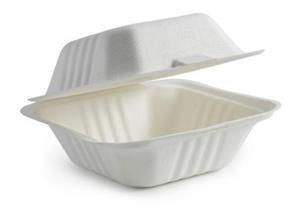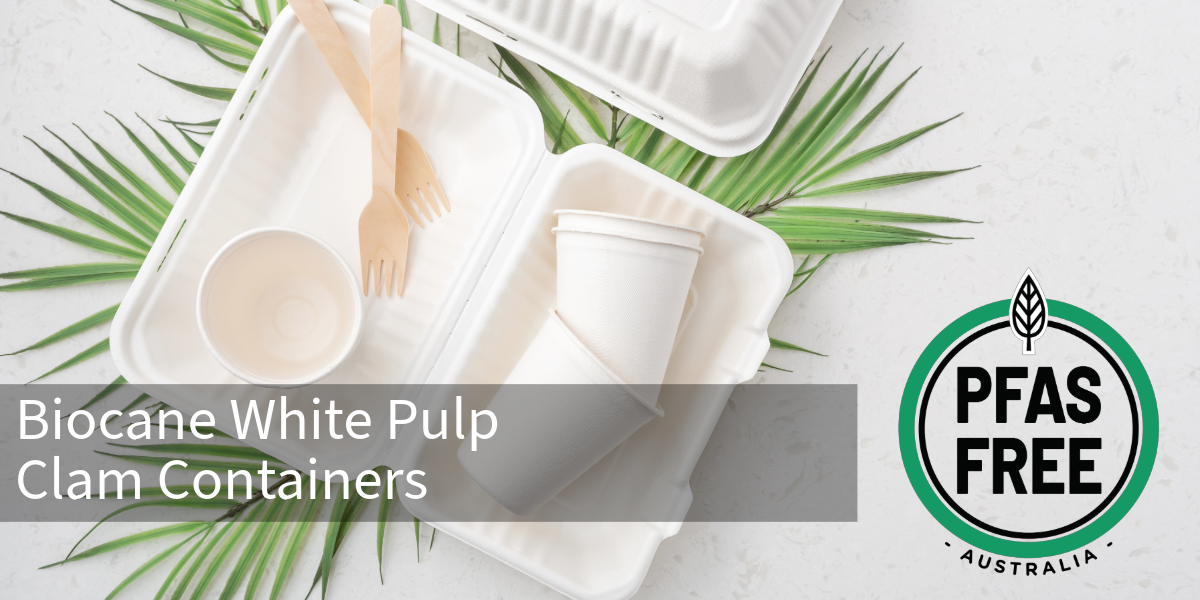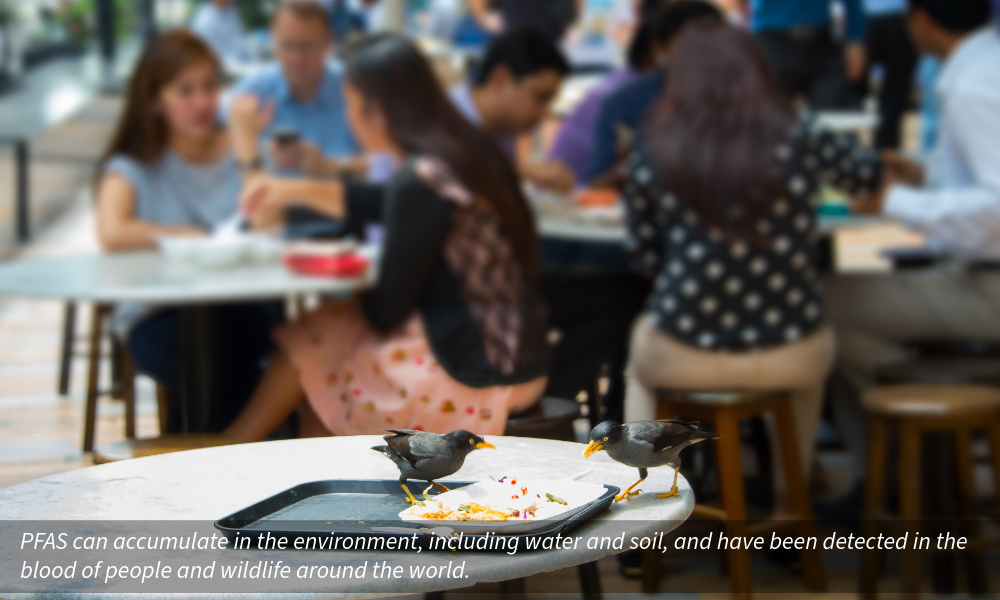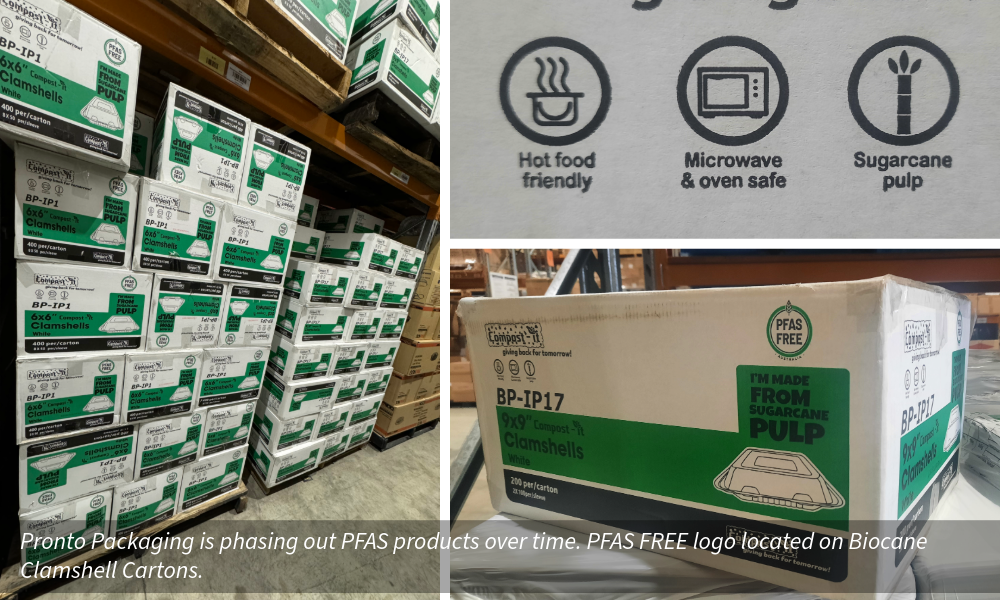Shop Now
- BAKERY
- BEVERAGE
- BRANDING
- CARDBOARD
- CLEANING
- COFFEE CUPS
- CONTAINERS
- FOAM
- FOIL
- GLOVES
- ICE CREAM
- PAPER
- PLA PLASTIC
- PLASTIC
- SUGARCANE
- WOOD
PFAS - Forever Chemicals
PFAS are polyfluoroalkyl substances, which are a group of human-made chemicals that have been widely used in various industrial and consumer products since the 1950s.
PFAS are known for their unique ability to resist heat, water, and oil, making them valuable in applications such as non-stick cookware, water-repellent outdoor gear, food packaging, firefighting foams, and more.
These chemicals are highly resistant to degradation, earning them the nickname "forever chemicals."
The concern with PFAS arises from their persistence in the environment and the human body. PFAS can accumulate in the environment, including water and soil, and have been detected in the blood of people and wildlife around the world.
Exposure to PFAS has been associated with potential health risks.
Some studies have linked PFAS exposure to adverse effects on the liver, immune system, and development, as well as an increased risk of certain cancers. Due to these concerns, there has been growing interest in regulating and managing the use of PFAS, as well as developing strategies for their remediation in contaminated areas.
NO ADDED PFAS:
We are transitioning to PFAS-free food packaging that offers several potential benefits, primarily related to human health and environmental sustainability. Some of these benefits include:
- Reduced Health Risks: PFAS have been associated with various health concerns, including liver damage, immune system suppression, developmental issues, and an increased risk of certain cancers. Eliminating PFAS from food packaging helps mitigate these potential health risks associated with human exposure.
- Environmental Protection: PFAS are persistent in the environment and can accumulate in soil and water, posing a threat to ecosystems and wildlife. Choosing PFAS-free food packaging helps reduce the environmental impact of these chemicals, preventing further contamination and the potential harm to aquatic and terrestrial ecosystems.
- Safer Recycling: PFAS-containing materials can complicate recycling processes. PFAS-free packaging is often easier to recycle, promoting more sustainable waste management practices.
- Consumer Confidence: As awareness of environmental and health issues grows, consumers are becoming more conscious of the products they purchase. Offering PFAS-free food packaging can enhance consumer trust and appeal to those seeking safer and more environmentally friendly options.
- Regulatory Compliance: Some regions are implementing or considering regulations to restrict or ban the use of PFAS in certain products, including food packaging. Adopting PFAS-free alternatives ensures compliance with evolving regulations and standards.
- Innovation and Market Leadership: Companies that invest in PFAS-free packaging contribute to industry innovation and demonstrate a commitment to sustainability. This can enhance their brand image, attract environmentally conscious consumers, and position them as leaders in the market.
- Improved Food Safety: PFAS can potentially migrate from packaging into food, especially under certain conditions. By using PFAS-free materials, the risk of chemical migration is reduced, contributing to improved food safety.
- Resource Efficiency: PFAS-free packaging materials may be sourced from renewable resources or be more easily recyclable, contributing to overall resource efficiency in the production and disposal processes.
While there are clear advantages to PFAS-free food packaging, it's essential to consider potential trade-offs, such as the performance and functionality of alternative materials, cost implications, and the need for continued research and development to ensure that substitutes are safe and environmentally friendly.
EXPLORE THE RANGE |
OTHER BLOGS
|
|
 |
 |
|
BIOCANE WHITE PULP CONTAINERS |
7 Truths About RPET |



